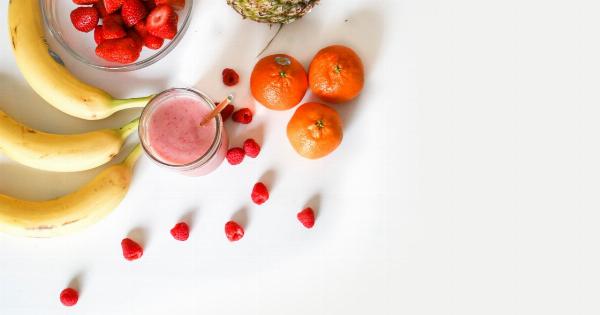Anemia is a common condition that affects millions of people worldwide. It occurs when your body lacks enough healthy red blood cells to carry adequate oxygen to the tissues.
Iron deficiency is one of the leading causes of anemia and can leave you feeling fatigued, weak, and irritable. Iron supplements are often recommended to help replenish iron levels and improve symptoms. However, there are certain steps you can take to ensure that you are getting the most out of your iron supplements.
In this article, we will discuss these simple steps and how they can help you optimize the effectiveness of your iron supplementation.
1. Consult with a healthcare professional
Before starting any iron supplementation regimen, it is important to consult with a healthcare professional. They can assess your specific needs and determine if iron supplements are necessary for you.
Blood tests may be conducted to measure your hemoglobin and ferritin levels, which are indicators of iron deficiency. Your healthcare professional can also advise you on the appropriate dosage and form of iron supplements based on your individual needs and medical history.
2. Take iron supplements on an empty stomach
Iron is best absorbed on an empty stomach, as certain foods can interfere with its absorption. It is recommended to take iron supplements at least one hour before or two hours after meals.
However, if you experience stomach discomfort or nausea when taking iron on an empty stomach, you can take it with a small amount of food. Avoid consuming iron supplements with foods that contain calcium, caffeine, or high amounts of fiber, as these can inhibit iron absorption.
3. Avoid taking iron supplements with tea or coffee
Tannins present in tea and coffee can bind to iron and hinder its absorption in the body. Therefore, it is advisable to avoid consuming these beverages when taking iron supplements.
If you are craving a warm beverage, opt for herbal teas or consume tea and coffee separately from your iron supplement intake to ensure optimal absorption.
4. Consider taking Vitamin C with your iron supplement
Vitamin C enhances iron absorption, so it can be beneficial to consume foods or supplements high in Vitamin C alongside your iron supplement.
This can include fruits like oranges, strawberries, and kiwi, as well as vegetables like bell peppers and broccoli. However, it is import to consult with your healthcare professional before adding any additional supplements to your regimen.
5. Space out other supplements
If you take other dietary supplements, it is important to space out your iron supplementation to maximize absorption. Certain nutrients, such as calcium and zinc, can interfere with iron absorption.
Therefore, it is recommended to take iron supplements at least two hours apart from these other supplements to avoid any potential interactions.
6. Avoid drinking milk or consuming dairy products
Calcium present in milk and other dairy products can inhibit iron absorption. It is advisable to avoid drinking milk or consuming dairy products when taking iron supplements.
Opt for alternative sources of calcium such as leafy green vegetables, almonds, and fortified non-dairy milk alternatives like almond or soy milk.
7. Stay consistent with your iron supplementation
Iron levels in the body take time to replenish, so it is important to stay consistent with your iron supplementation. Follow the recommended dosage and duration advised by your healthcare professional.
Missing doses or discontinuing supplementation prematurely can delay the improvement of your iron levels and prolong your symptoms of anemia.
8. Be aware of potential side effects
Iron supplementation can sometimes cause gastrointestinal side effects such as constipation, diarrhea, or upset stomach. If you experience any of these side effects, discuss them with your healthcare professional.
They may recommend adjusting your dosage or trying a different form of iron supplement to minimize these effects.
9. Store iron supplements properly
Iron supplements should be stored in a cool, dry place away from direct sunlight. High temperatures and moisture can degrade the quality of iron supplements and reduce their effectiveness.
Follow the storage instructions provided on the packaging to ensure the longevity and potency of your iron supplements.
10. Reevaluate your iron levels periodically
As your iron levels improve, it is important to reevaluate your iron levels periodically through blood tests. This will help you and your healthcare professional determine if adjustments need to be made to your supplementation regimen.
Regular monitoring allows for personalized care and ensures that you continue to get the most out of your iron supplements.






























